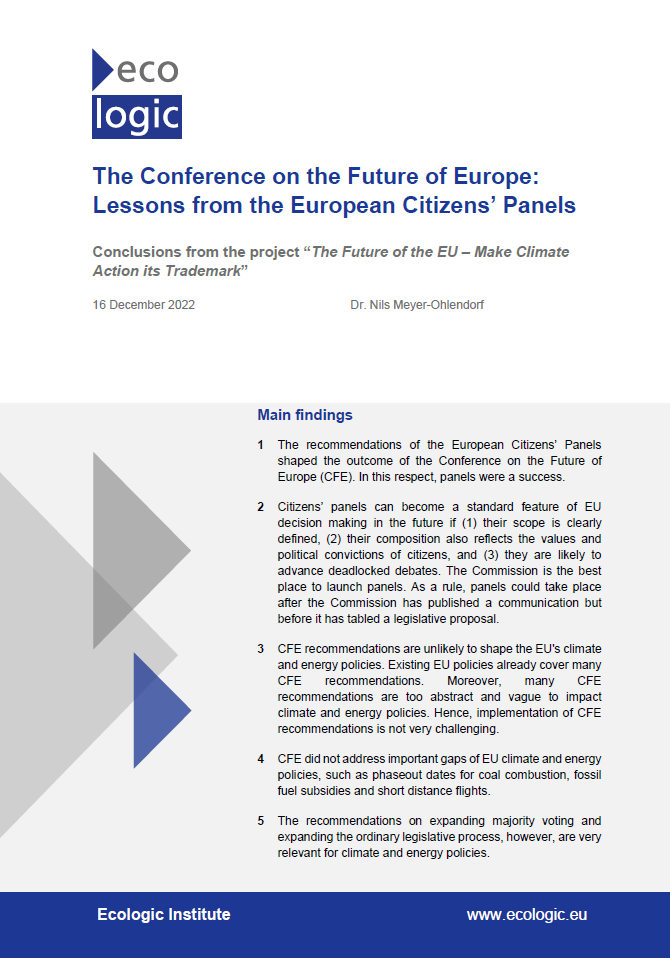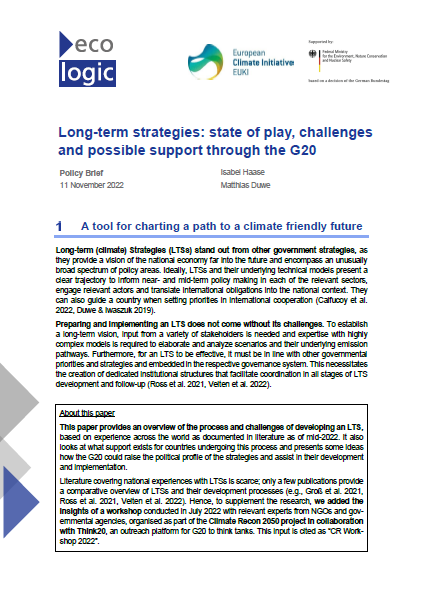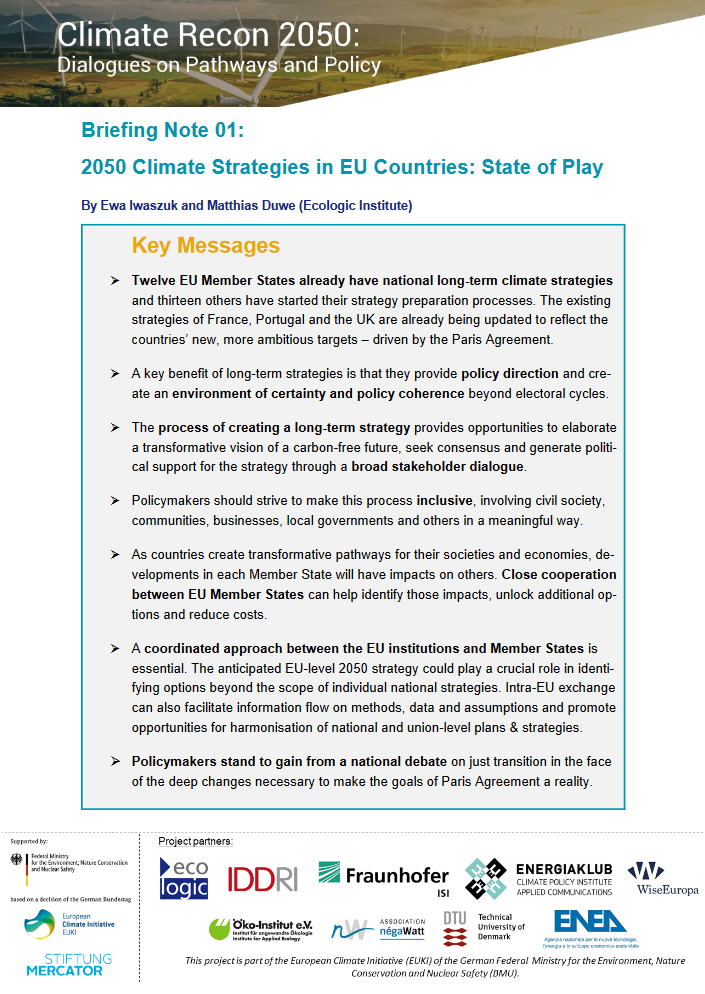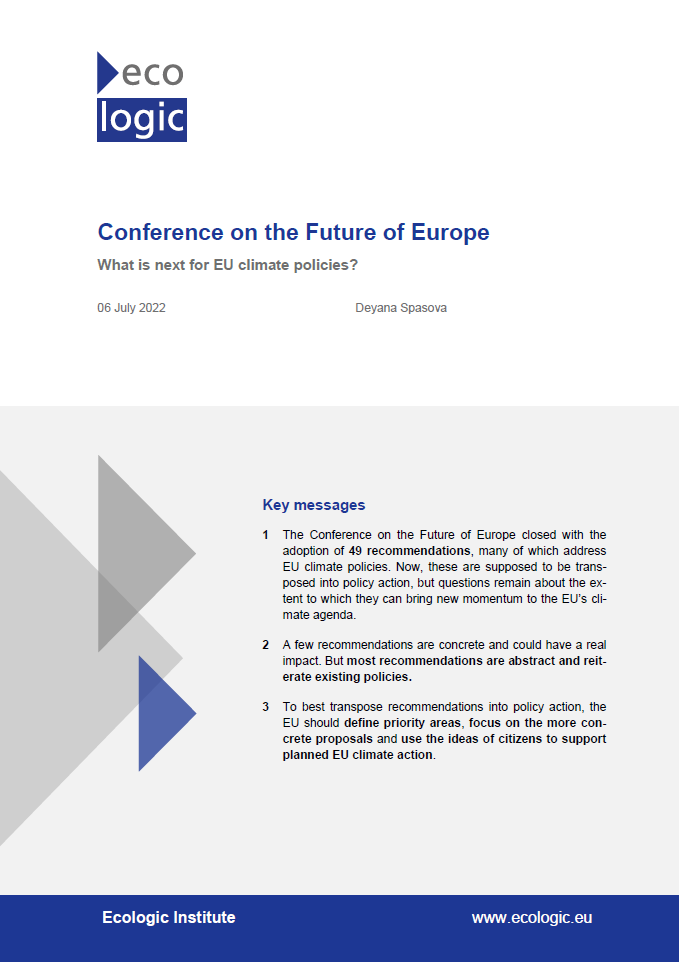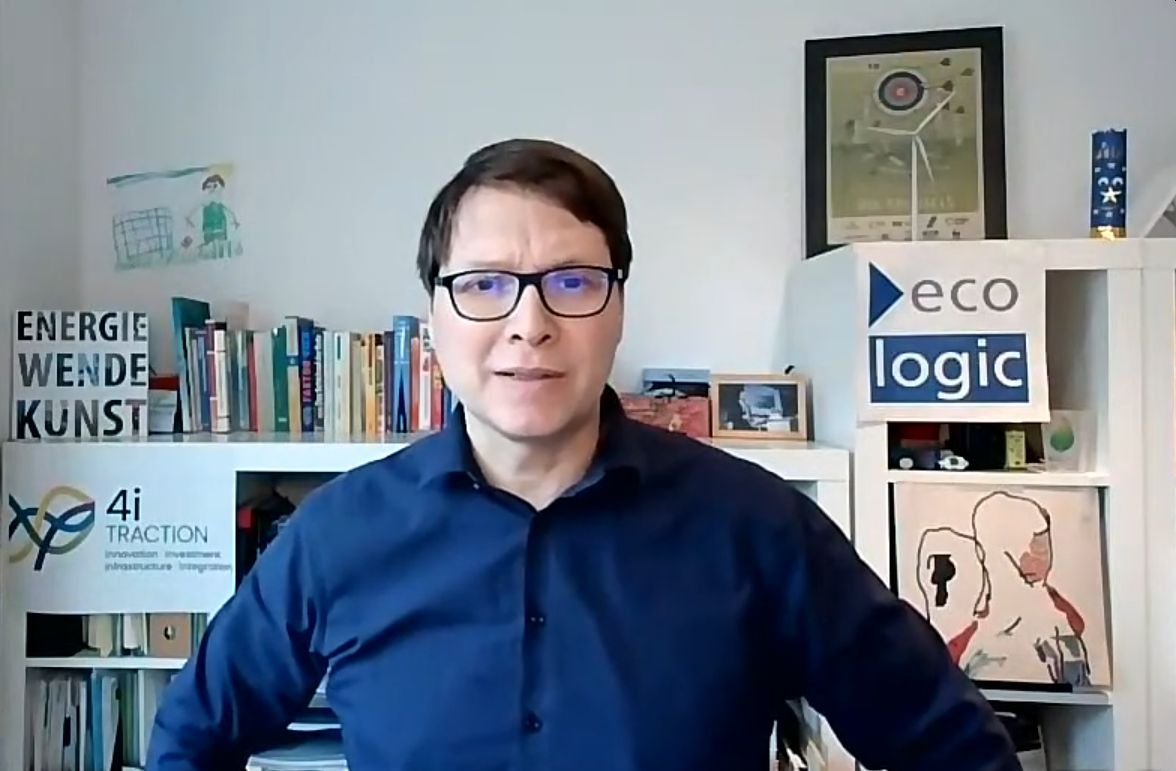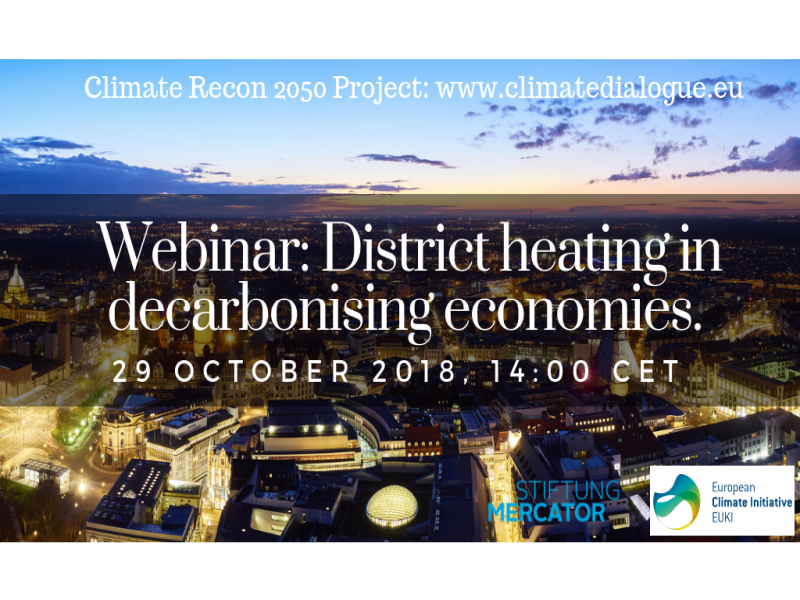The Role of the LULUCF Sector in Reaching Carbon Neutrality in 2050
Visions for the LULUCF sector in EU Member States’ Long-Term climate Strategies
- Event
- Date
-
- Location
- online
Achieving climate neutrality in the EU requires emission removals, which are tightly linked to the land-use, land-use change, and forestry (LULUCF) sector. Emerging technologies are also being sought to remove emissions by other means, e.g., carbon-capture and storage (CCS), carbon-capture and utilization (CCU), direct air capture (DAC) and biotechnology and carbon capture (BECCS). But how much importance do EU Member States assign to the LULUCF sector, and to what extent do they explore its contribution to reaching climate neutrality?
This webinar presents and discusses the findings of a report by the Stockholm Environment Institute (SEI Tallinn). The analysis, conducted as part of the Climate Recon 2050 project, analyses the role of the LULUCF sector in Member States’ Long-Term Strategies (LTSs). Although the majority of LTSs published so far address the topic, the extent to which countries with significant potential in the sector explore its contribution to climate neutrality varies, even among Member States with significant needs for modernization of their existing legacy networks.
The report describes the current situation, highlights key challenges and shortcomings of LTSs, and proposes a way forward for integrating the LULUCF sector into climate neutrality strategies.




